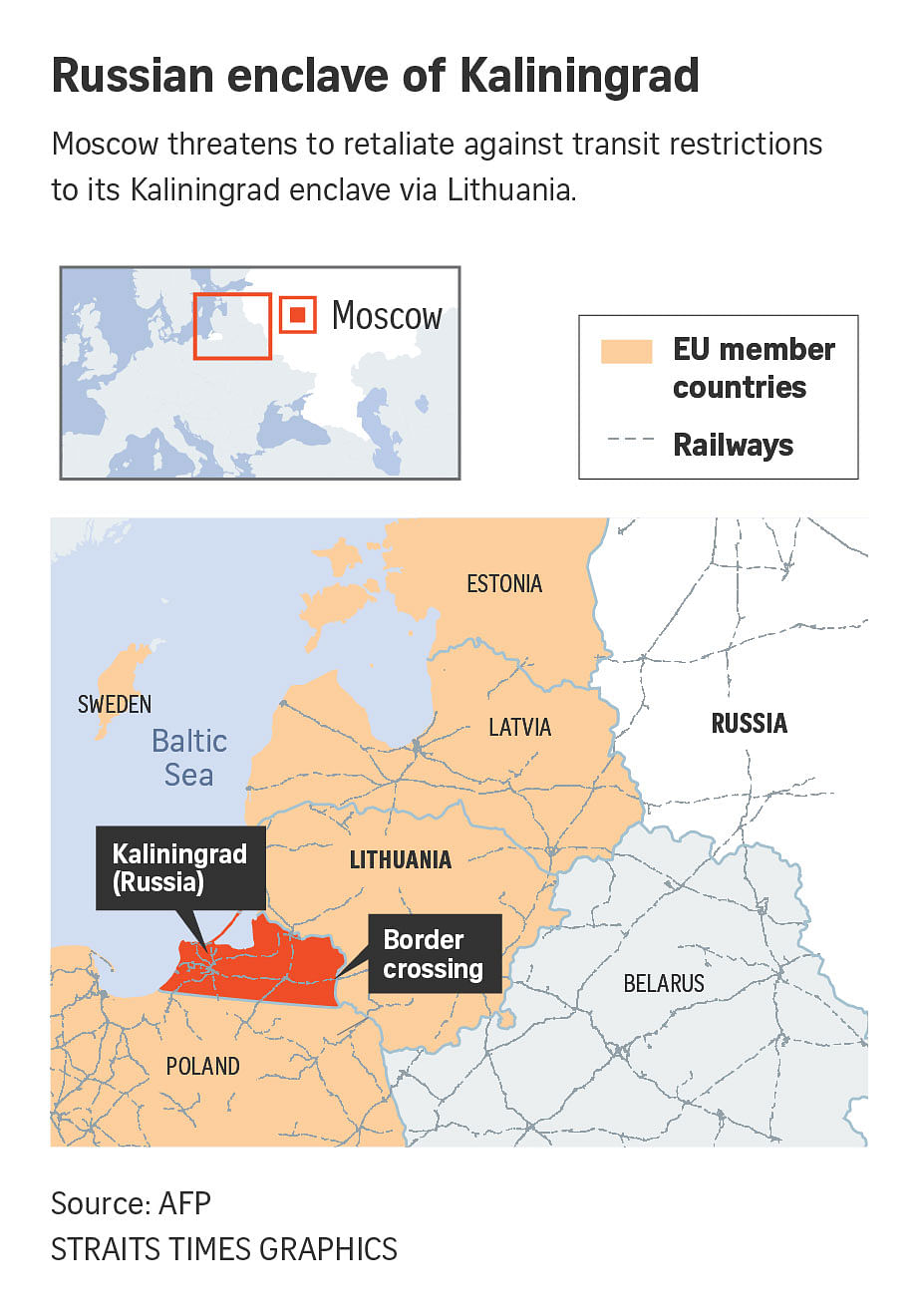PARIS (AFP) - Situated some 1,000 miles from Moscow, the Russian outpost of Kaliningrad has been drawn into the war in Ukraine, after Lithuania said it would no longer act as a conduit for sanctioned goods arriving in the territory from the motherland.
Here are some key facts about the territory wedged between Lithuania and fellow EU and Nato member Poland, which has found itself increasingly isolated since Russia invaded Ukraine.
Home of Prussian kings
Kaliningrad covers an area roughly half the size of Switzerland, centred on the former Hanseatic port of Koenigsberg, which was seized by the Red Army from Germany in the closing stages of World War II.
In 1946, the city was renamed Kaliningrad after Mikhail Kalinin, a prominent Soviet leader. Its German population fled or was expelled by the Soviets.
Founded in 1255, the city was the home of the kings of Prussia and the birthplace of 18th-century philosopher Emmanuel Kant.
The territory, which is home to a little over one million people, became separated from the Russian mainland following the break-up of the Soviet Union in 1991.
Baltic bastion
The territory has a long military tradition, acting as one of Germany's easternmost strongholds during the two World Wars before becoming a bastion of Soviet power during the Cold War.
In recent years Moscow has stepped up its military activities in its only year-round ice-free port on the Baltic Sea, home to its Baltic Sea fleet.
In February, just before invading Ukraine, Russia deployed hypersonic missiles to the territory and last month it announced that it had practised simulated nuclear-capable missile strikes in western Kaliningrad.
Ice-free investment hub
Russia's toehold in Europe is also a hub for trade between Russia and eastern Europe and was a magnet for foreign investment before the war, with BMW among a handful of foreign automakers that assembled vehicles in its Special Economic Zone.
Much of the trade between the Russian mainland and Kaliningrad flows through Lithuania, which is now refusing to let through rail shipments of Russian goods that are targeted by EU sanctions.
Kaliningrad governor Anton Alikhanov says the "blockade" affects up to 50 per cent of the enclave's imports.
The imports targeted include metals, cement, alcohol and fertiliser, with coal and oil to follow at a later date.
Moscow accuses the EU of violating a 2002 agreement on travel between Russia and Kaliningrad and has threatened Lithuania with "serious" consequences.


